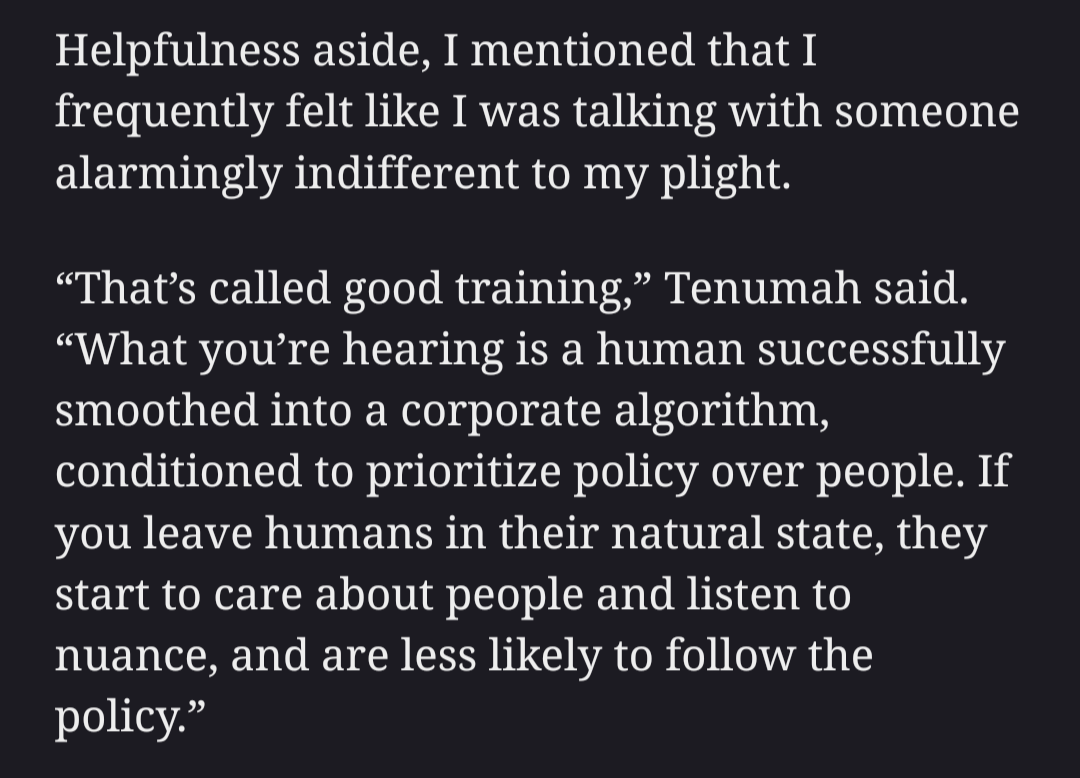It's worse than that, though. Call centers cheap out on long distance service, trading off call quality and reliability to save a few pennies. The fact that you can't hear the person on the other end of the line clearly, and that your call is randomly disconnected, sending you to the back of the hold queue? That's a feature, not a bug.
4/

